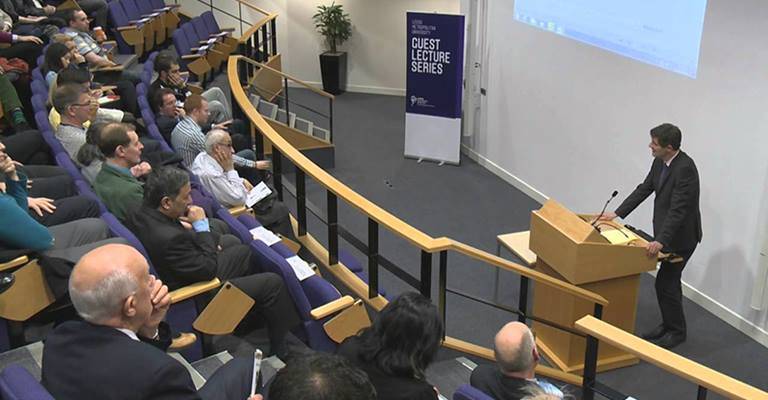An appearance of Israeli Embassy spokesman Yiftah Curiel at a major British university was cancelled at the last minute last week under disputed circumstances.
The University of Leeds claimed the student group that sponsored a public interview about the Iran nuclear deal with Israeli Embassy spokesman Yiftah Curiel had cancelled the event; the group — — the Politics and International Studies Society (POLIS) — said the student union, under pressure from a pro-Palestinian student organization, was behind the cancellation.
According to a university statement obtained by The Algemeiner, POLIS cancelled the event because it was “unable to secure speakers who could offer alternative viewpoints.”
POLIS denied this claim its Facebook page, stating that the Leeds University Union’s assertion the cancellation was due to “matters relating to the paperwork and lack of time” was unsatisfactory, because the event had been “several months in the planning and had sufficient provisions to ensure an informed and lively discussion.”
POLIS stated its event was “cancelled unfairly due to pressures on the university from an open [protest] letter from the [Leeds Palestine Solidarity Campaign (LPSC)].”
LPSC’s letter, published Tuesday, called for an “emergency protest,” and complained that the debate would be a “stitch-up: audience questions are all pre-vetted, and no corresponding invitation has been given to a similarly well-briefed (or well-funded) senior figure to [support to the opposing side].”
The letter continued by supporting the general boycott, divestment and sanctions (BDS) movement against Israel, and insisting, “Inviting Israeli officials to speak on university campuses is … in violation of the Palestinian call for [BDS].”
The letter concluded,
While debates in general are indispensable for rationally and logically debunking the other side’s propaganda … debating Israeli officials … does more harm than good to the struggle for Palestinian rights … BDS [entails] challenging the ability of Israeli officials to use academic institutions and spaces to defend Israel’s regime of oppression.
The letter was signed by a dozen Leeds faculty members.
Roxanna Jafarifar, president of POLIS, commented to The Algemeiner:
We feel that the letter, signed by academics within our own school, has done a great disservice to students; denying them the opportunity to engage in a dialogue and be exposed to views that they have arbitrarily decided should not be given a platform within our university.
The Algemeiner queried both the Leeds senior administration and LPSC about whether the sentiments expressed in the LPSC’s letter were consistent with the university’s academic norms, including its conception of freedom of speech, but no responses had been received by press time.
By: The Algemeiner










